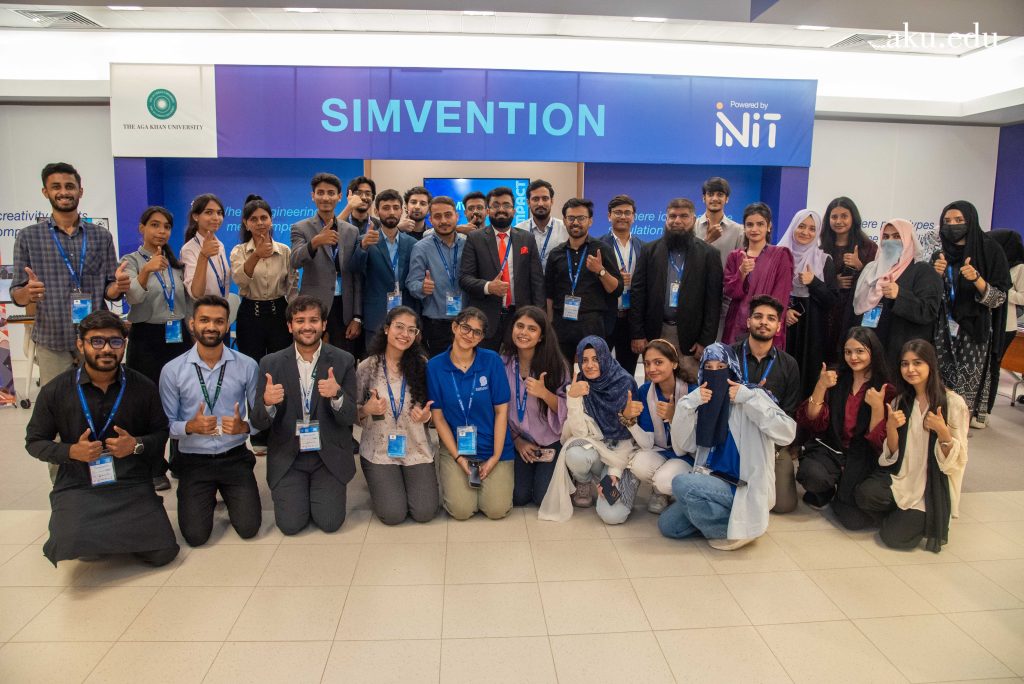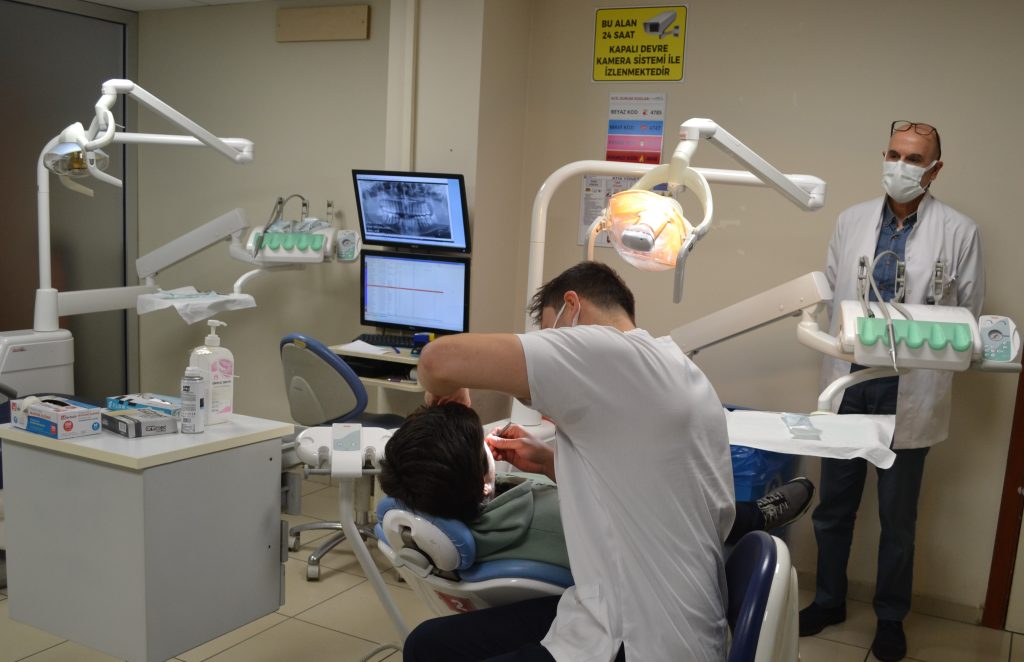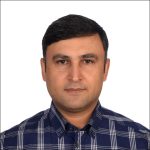In the dynamic arena of education in healthcare, Dr. Adam Cheng stands out as a driving force, seamlessly integrating pediatric care with innovative educational strategies. His co-edited work, Comprehensive Healthcare Simulation: Pediatrics, has become an essential reference for professionals and scholars alike. Beyond his editorial contributions, Dr. Cheng has an extensive research portfolio, with numerous publications that have significantly influenced simulation practices. While his professional life revolves around improving patient safety and medical learning, his passions extend well beyond the clinical sphere, from experimenting with traditional Korean recipes in his kitchen to dreaming of life among the stars as an astronaut. This blend of scientific rigor, creativity, and curiosity defines Dr. Cheng’s approach to both medicine and mentorship, making him a uniquely inspiring figure in the field.

Adam Cheng
Adam Cheng, MD, is a Professor in Pediatrics and Emergency Medicine at the University of Calgary, and Scientist at the Alberta Children’s Hospital in Calgary, Canada.
As a resuscitation researcher and scholar, he is passionate about improving patient care through simulation, technology, and debriefing. Adam is the co-founder and past chair of the INSPIRE network, the world’s largest healthcare simulation research network, and has led numerous international multicenter trials using simulation-based research methods.
Welcome to SIM Face, where we highlight the individuals leading the shift towards simulation and fostering a culture of patient safety. Through their stories and insights, we aim to inspire and connect professionals in the field. So, Adam, welcome in this special space. Your extensive background in pediatrics and emergency medicine has profoundly influenced your approach to healthcare simulation. What pivotal experience ignited your passion for simulation and experiential learning?
Thanks so much for having me! Reflecting back, I’ve had the incredible fortune of having excellent mentors who have helped guide me during my academic journey. Early in my career, I was encouraged by Dr. Anna Jarvis, one of the first Pediatric Emergency Medicine physicians in Canada, to become a PALS instructor. Teaching the PALS course as a pediatric resident and emergency medicine fellow help to fuel my passion for resuscitation education. During my fellowship training, I was fortunate to meet Dr. Vinay Nadkarni, who introduced me to simulation based education, and provided opportunity for me to volunteer with the American Heart Association (AHA). My involvement in AHA resuscitation courses during the earlier days of simulation based education was pivotal in providing foundational experiences in simulation-based education and curriculum development that have shaped my academic career and journey in healthcare simulation.
Your career is brilliant, but what personal achievement in your professional journey are you most proud of?
Great question …. Thinking back, one of the most challenging projects was the very first simulation research project I led as principal investigator. This was a multicenter randomized controlled trial exploring the value of scripted debriefing across 14 sites in North America. As a junior researcher with little to no simulation-based research experience, I relied heavily on my mentors, Vinay Nadkarni and Betsy Hunt, to guide me through this research project. During this project, we ended up developing four different assessment tools and conducting validation studies, in addition to completing the main clinical trial. This experience helped to solidify my interest in simulation as a tool to answer clinically important research questions.
Can you share an unexpected lesson you’ve learned from your experiences in simulation training?
In the earlier portion of my academic journey, I gravitated towards surrounding myself with like-minded colleagues and collaborators. This was always just easier, as the people me tended to agree, which made things more efficient. As time has passed, I’ve discovered that there’s richness and value in diversity …. specifically ensuring that your research and academic team includes collaborators of differing professions, backgrounds, expertise, and viewpoints. I’ve also learned that with diversity comes opportunities for personal and professional growth.
Now an easy question 😉, in your opinion, what is the most urgent challenge facing healthcare simulation today?
I think one of the biggest and most urgent challenges facing healthcare simulation is understanding how to utilize and integrate artificial intelligence into our daily practice. The field of AI is rapidly evolving, and we’re just starting to understand how this technology can help us to enhance efficiency and amplify the impact of simulation. One of the tensions that we’re starting to feel is the threat of AI taking over task normally done by simulation educators or researchers … how can we successfully develop the next generation of simulation educators, researchers and scholars whilst maintaining the necessary skillset to become true experts in the field? The other challenge relates to ethical use of AI – and ensuring that AI work products are accurate and free of bias before being integrated into our workplace. Interesting to see how healthcare simulation evolves in the next five years – will we be able to successfully integrate AI in an ethical manner, well ensuring we maintain the knowledge and skills to be productive in our field?
You are one of the founding fathers of the INSPIRE network. Could you tell us about its significance and impact on simulation research?
We founded the INSPIRE network over a decade ago as a means to bring together researchers to do larger, multicenter trials. Over the years, the network has evolved to become a community of educators, researchers, clinicians, and scholars who all share similar passion for leveraging simulation to improve health care outcomes. What’s been most impressive about this group is the collaborative culture that has been built, where researchers can share novel ideas and receive feedback without fear of their idea being stolen or repurposed. This has resulted in tremendous productivity, birth of new collaborative research programs, and the development of a new generation of healthcare simulation researchers and scholars. The last time I checked there were over 120 sites from 36 countries engaged in the INSPIRE network …. With each passing year seeing more growth and expansion. I can’t wait to see what the future holds for this network!
Adam, you’ve spend quite a bit of your career exploring the role of debriefing in healthcare simulation. Can you speak about the evolution of your scholarly journey in debriefing?
I ‘found’ debriefing early in my career – I was immediately drawn to the complexities associated with facilitating learning conversations and I was intrigued to learn more! I teamed up with Vincent Grant and Walter Eppich, two close friends of mine, and we proceeded to map out a series of topics to explore over 10 years. Our goal was to clarify how debriefing could be utilized to maximize learning outcomes in healthcare simulation. We have tried to unpacked all the various elements that comprise a debriefing – frameworks, conversational strategies, co-debriefing, emotion, learner centeredness, cognitive load, cognitive bias and much more – and provide a better understanding of how these elements function through research or translating lessons from other fields. Now that we’re 15 years into this program of research on debriefing, I believe we have a greater appreciation for the role of debriefing, and how these conversations should be tailored to the needs of the learners.
You now share your debriefing knowledge and expertise through The Debriefing Academy and The Academy Archive. Can you describe the inspiration behind these initiatives and what they offer?
The Debriefing Academy was developed to address the pressing demands for debriefing training around the world. The Master Debriefer Course is the main offering … immersive learning experience that provides the advanced content, strategies, and tools necessary to improve your debriefing skills. We’ve been able to assemble some of the most talented and experienced debriefing experts to serve as faculty on this course … and they provide tailored feedback to ensure all participants acquire the skills they need to bring their debriefings to the next level. The Academy Archive, on the other hand, was developed to offer global access to continuing faculty development through a subscription-based service – similar to Netflix, but for simulation educators, researchers, technicians, and administrators. With an annual subscription to the Academy Archive website, users have access to over 10 novel simulation courses and >500 hours of learning, covering a wide range of topics, including debriefing, patient safety, leadership, immersive learning, simulation operations and much more. Eventually, we hope to build this website into the most comprehensive collection of healthcare simulation resources in the world!

As vice-chair of the ILCOR Education, Implementation, and Teams Task Force, you’ve been instrumental in evaluating resuscitation education and implementation science. Could you share a particularly memorable experience or insight from your time with ILCOR that has significantly influenced your approach to simulation-based education?
ILCOR has been a tremendous experience for me; I’ve so much over the past 15 years. ILCOR is a huge international team of volunteers who provide continuous evidence review of resuscitation science in order to produce treatment recommendations for the global community. Perhaps the most memorable experience has been the GIANTS of Resuscitation Awards ceremonies: these are awards given out every 5 years to the most influential resuscitation researchers. I’ve attended 3 of these ceremonies thus far, and hearing the awardees speak about their personal journeys has been so inspiring! It’s a great reminder that with hard work, you can really make a difference in the lives of people all around the world.
What hobby or interest might your colleagues be surprised to learn about?
I’m a complete golf nut …. I’ve been trying to master the game for over 40 years now and it still gets the best of me. When I’m at home, I enjoying cooking, particularly new recipes! Right now I’m trying to learn how to make traditional Korean dishes.

What is your favorite city to visit and why?
I love Singapore. I enjoy the variety of food the city has to offer, with a blending of cultures from countries in the region. There are also some incredible sights and amazing people there! Can’t wait to go back.
We typically conclude our interviews with a spontaneous and thought-provoking question: if you had to choose an alternative career path, what profession would you pursue?
Exploring outer space has always been a dream of mine, so I’ll say astronaut!
Thank you for sharing your insights with us. Chatting with you was lovely. Your dedication is truly inspiring. We wish you a good day!
And to our SIMZINErs, stay tuned for more stories from the leaders of simulation in our next SIM Face interview.
READ ALSO












































